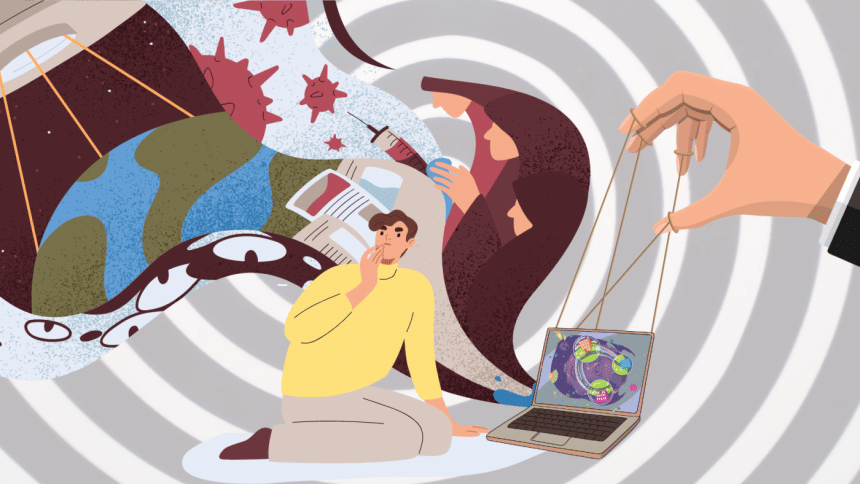Is your favourite edutainment channel spreading propaganda?

The most commonly accepted difference between education and propaganda is that propaganda spreads information with an inherent bias towards a group or an ideology, whereas education serves mainly to answer questions residing deep within the mind. Whenever I can, I try to spend my time on YouTube consuming 'edutainment' content from a variety of these entertaining educational channels. Sometimes I run into answers for questions I never asked, and the feeling of having so much unexplored in easy-to-consume videos is gratifying. I have grown to appreciate many channels that work to educate in an entertaining medium, but recently, something else seems to be happening in the underbelly of these YouTube channels.
YouTube videos are made to be addictive to watch. When you combine that particular quality with educational content, the result is something that is light, fun, and meant for everyone. However, it's also worth noting that the people behind these channels are not always researchers or experts in their field. The work they produce is generally funded by sponsors and their audience, and as a result the content they produce inherently showcases some form of bias towards these parties. This is where edutainment slowly dips into the world of propaganda.
Recently, there has been a debacle over the content of Kurzgesagt and the possibility of billionaire bias in their videos. While it was later disproven that the Bill and Melinda Gates Foundation is responsible for most of their funding, the fact remains that the channel as a whole remains very pro-big pharma without talking about a lot of the harm the big pharma industry has caused. They have also, on numerous occasions, praised the work done by the billion-dollar organisation B & M Foundation. However, the sociological harm a billion-dollar organisation can cause is often overlooked in these content
Now, does this mean that Kurzgesagt is definitively spreading propaganda? Well, it would be incredibly crass to generalise everything they say as propaganda because there is genuine research carried out for every video with veritable facts being provided, but the truth is that there may be some clear signs of biases present that the viewer must be aware of.
It's important to recognise that a well-established YouTube channel functions the same way a business would. Thus, they constantly seek out sponsorships and funding from their community. To this end, slight misrepresentation of factual information is rather commonplace. And even with citations present, it's not always possible or desirable for viewers to pore through every paper. And yet, that is exactly what creates such a grey area. Reliance on a handful of entertainment sources on YouTube for learning purposes has harmful sides. Many channels tend to abuse this, just not very directly.
There is also the fact that when it comes to edutainment in humanities, so many of these channels share ideologies that are either superficial or vaguely conservative. This leads impressionable teenagers down a pipeline of increasingly harmful ideologies. Forcing them to stop watching is not a feasible solution, so what do we do?
Next time you find yourself mesmerised by a piece of information you learn on a YouTube video, make sure to look for citations. Study them in your spare time because learning anything is not just a process of watching a 10-minute video. Moreover, try to do your own research, because it's also worth noting that not everyone will comprehend the same information under the same lens. Propaganda is fed easily and one must remember to learn with caution.
Raian is a certified hater of summer.

 For all latest news, follow The Daily Star's Google News channel.
For all latest news, follow The Daily Star's Google News channel. 








Comments